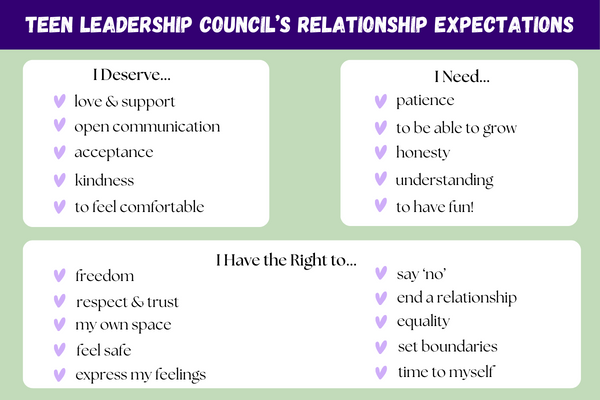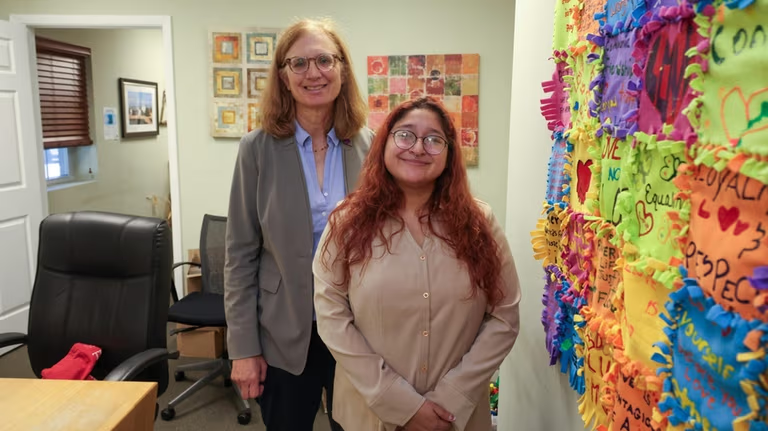By Christina, a Retreat Volunteer and College Student
In light of Teen Dating Violence Awareness Month, the Retreat’s Teen Leadership Council (TLC) received training on how to ask for help when experiencing unhealthy or abusive behaviors in relationships. TLC learned to make a Resilience Plan consisting of three different groups of people–parents/other trusted adults, peers, and professionals–whom one can gain support from. This gives teens three different people in each category they can confide in if they are ever in a dangerous situation. Building a foundation of trusted adults, peers, and professionals calls for the certainty that a teen can develop the confidence to be vulnerable with at least one person in their plan.

The Resilience Plans continued to ask how teens can care for themselves and those around them. TLC was asked to think about ways to look after themselves daily, such as exercising or going outside. Doing so will promote the healthiest possible mindset for teens, ensuring that they have positive mental states and can maintain favorable habits within relationships. Teens further thought about what advice they would give a friend in a dangerous situation, allowing them to recognize the helping perspective and encouraging them to speak up when seeing instances of abuse among their peers.
Finally, TLC was given the goal of producing relationship expectations, specifically, what they deserve, have the right to, and need. In my opinion, this was probably the most difficult part of the Resilience Plan for teens. Adolescence is a time of insecurity, often causing a lack of understanding of individual worth. Empowering teens to step outside their comfort zones to fuel self-confidence and expect respect in relationships is a significant aspect of TLC’s effort to spread awareness during Teen Dating Violence Awareness Month.


